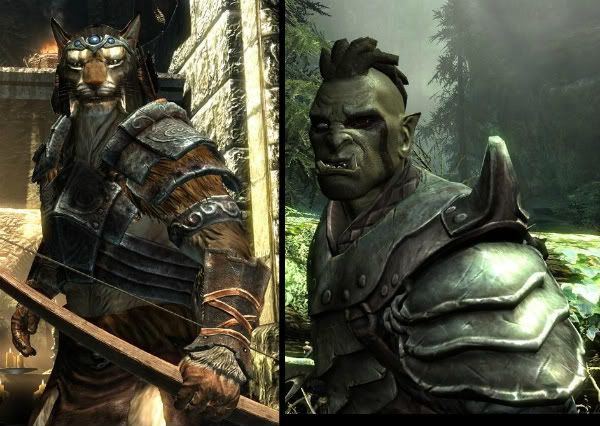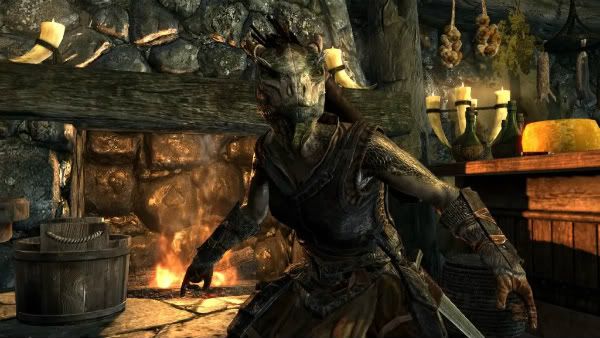This post has not been edited by the GamesBeat staff. Opinions by GamesBeat community writers do not necessarily reflect those of the staff.

It's their eyes and haughty expression and condescending tone that draws my sword and queues up my frost spell. The Thalmor, the combined government of the Aldmeri Dominion, are a proud, domineering race of elven supremacists. They're also huge dicks.
While these high elves, or Atmer (which translates to "cultured people"), become a great antagonist in the latest Elder Scrolls game, my response also makes me a racist — something Skyrim encourages.
Because racism cannot thrive without distinct physical or cultural differences among people or, in Skyrim's case, skill bonuses, skin colorm and long bushy tails protruding from your pants.
Players tweak their avatars, choosing everything from sex, cultural backgrounds, and the size of their chins. But all the while, this makes it easier for Skyrim to create neatly divided and cataloged stereotypes.
These stereotypes are enforced with universal, innate abilities among a race, like the Khajiit's Night Eye, which grants the Mer race with low-light vision coupled with skill bonuses in sneak, lock-picking, and pickpocketing.
Every Khajiit you encounter in the world has these qualities, perpetuating your own preconceived notions of a crafty thief or swindling merchant. And the game has no problem in relying on the caricature, providing shady travelling Khajiit shopkeepers loitering at almost every city gate.
Also, they're big hairy cats. So you'll never mistake a them for an Imperial or a Nord or a green, scaly Argonian.

The Redguard race is particularly problematic. As Bitmob community writer Matthew Anfuso explains in his comment below, games like Oblivion and Morrowind tied magic skills directly to intelligence and willpower, traits the Redguards were extremely deficient in.
"I didn't think anything of it then but now it just seems rather racist," Anfuso says. "By assigning a numerical value to a statistic called "intellegence," it is implied that a higher value equals a smarter person. Because Redguards have their intellegence severely limited as an inate racial characteristic, they cannot perform magic very well, so they are too stupid to do magic."
Thankfully, Skyrim has made steps to avoid this by doing away with these stats so that even a Redguard can become proficient in magic.
But I understand why developers do this: acutely defined races and stereotypes are practical. If character traits were random and race merely cosmetic, things could get confusing. In an interactive game world of one-dimensional characters, the developer needs to unpack an absurd amount of information within a limited window.
So, racism becomes a literary tool, a shortcut to characterization when you don't have time for nuance.

How do we make a shopkeeper in town A stand out from shopkeeper in town B? Make one a brash, penny pinching Imperial and the other a simple-minded, patriotic Nord…and hope it adds some color and continuity to the player's immersion.
However, where video-game limitations make racism useful, the unique opportunity to live in someone else's skin is also a powerful metaphor for understanding the "other."
While the lizard-esque Argonians may appear alien during a battlemage Breton playthrough, the ability to live the game again in lizard skin is, at times, moving. Suddenly the plight of the overworked, underpaid Argonian dock workers hits closer to home. The hiss of pain when taking damage or the lithe green fingers grasping a mace in first person perspective are a reminder that you're seeing the world through reptilian eyes. A single playthrough breeds intolerance, multiple playthroughs foster solidarity.
You don't have to walk a mile in the footwraps of every man, elf, or Orc, but embracing more than one perception is the golden rule in action: do unto non-player characters as you would have them do unto Dovahkiin.
